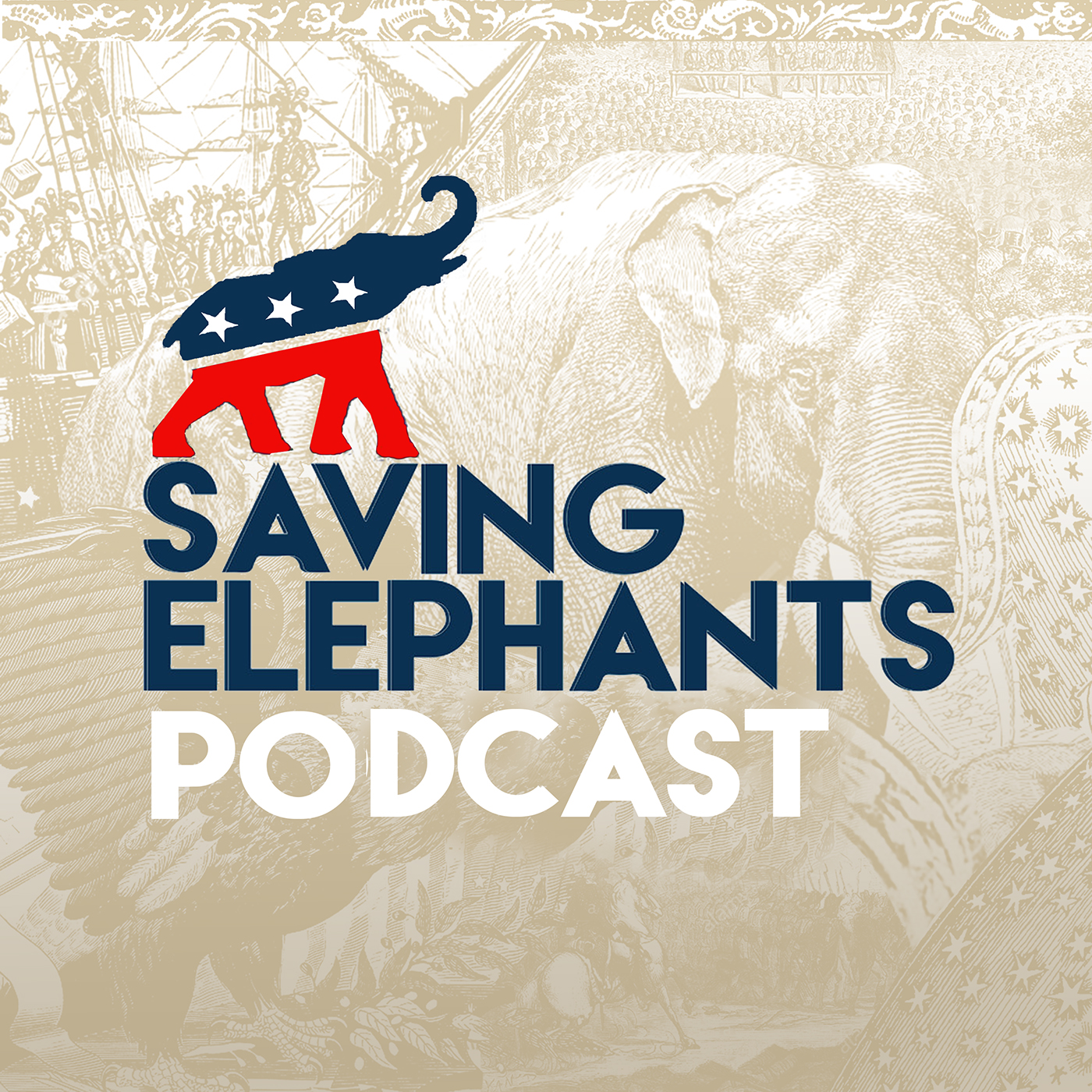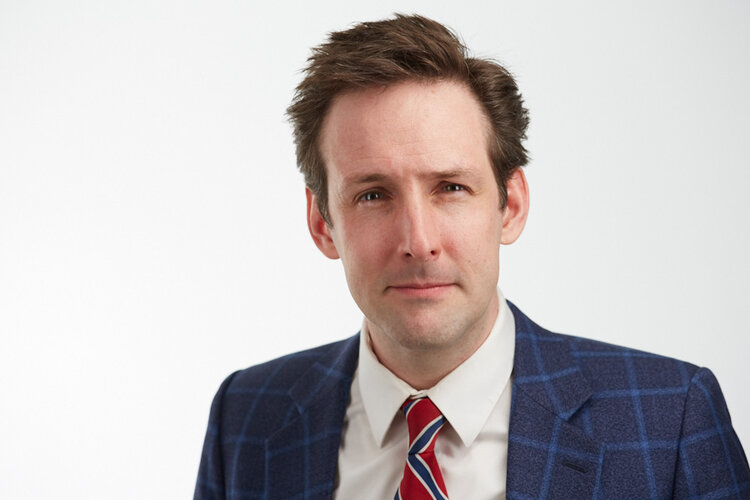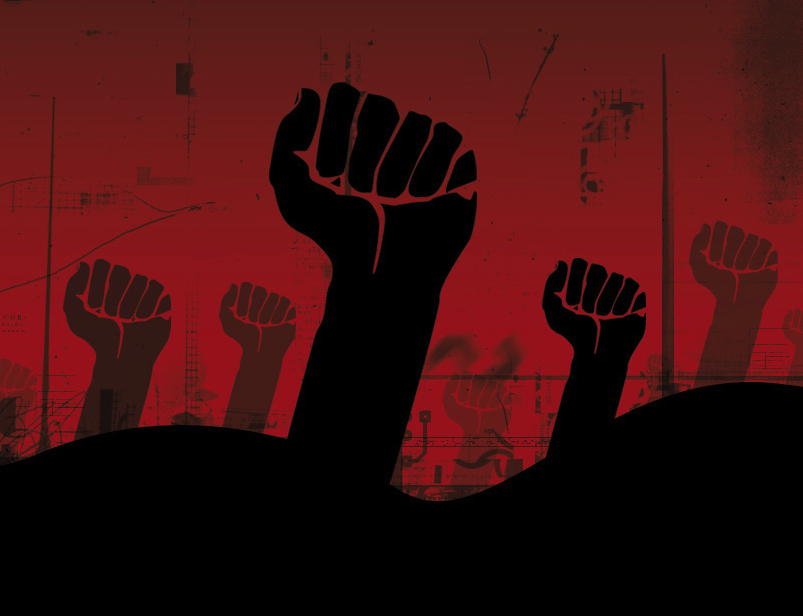

Ignorance is bliss—so they say—and I suspect much of that has to do with a certain unassuming, ignorant confidence about the world around us. The more we learn, the more we realize how much we still don’t know. When we know very little, it can be much easier deceiving ourselves into thinking we know about all there is to know about some individual or concept.
Since 2016 I have been slowly and painstakingly working my way through Russell Kirk’s
Now here I am, nearly four years later, producing podcasts and blog posts and immersing myself in conservative ideas and arguments. I feel significantly less ignorant yet, I must confess, all the more ill-equipped to take another stab at this central concept of conservative thought: As
“The conservative believes that there exists an enduring moral order. That order is made for man, and man is made for it: human nature is a constant, and moral truths are permanent.”
The full implications of this idea—not to mention the arguments in favor or disapproving of this view or the thorny business of trying to agree upon a working definition of “moral order”, “human nature”, or “permanent truths”—is precisely what makes this so challenging to untangle. But untangle we must for, if we ever hope to understand conservatism, we must first understand the foundation conservatism rests upon.
Adding to the confusion is the multitude of ways in which this concept has been explained and the various labels that have been attributed to this central idea. What Kirk calls an enduring moral order has gone by many other names from law to norm to authority to divine truth to natural law to sacred law to God’s law to many others. Throughout this series, I’ll simply refer to the idea as “order” and attempt to parse through instances where I’m quoting someone who seems to have a slightly different idea or word in mind.
Material and Immaterial Laws
I believe Kirk still had this notion of an enduring moral order in mind when he wrote of “law” and “norm” in
And because it’s outside of the material world, it cannot be studied or measured or defended through material means. We can observe the law of gravity each time we miss a step or lose our grip on a plate of food and we can discern certain truths about gravity through the scientific method. But we can’t do the same for concepts like justice or love or courage. If we are going to get on knowing anything about virtues, we must come by this knowledge by some other means than tools used to understand the material world.
But while there may be obvious differences between the order of the material and the immaterial realms, they are alike in three important ways: First, our ability to understand them is finite. We have certain tools at our disposal to learn more about the material world around us, but no scientist worth their salt would claim we are ever capable of fully understanding all there is to know about the material world in some exhaustive sense. Science is self-correcting and ever-learning, it is not capable of perfect knowledge. Our ability to comprehend, or agree upon, aspects of the immaterial moral order is even more limited. While tools like reason, tradition, intuition, and claims of revelation may help, much of the moral order is truly inscrutable.
Second—as Kirk tells us—we don’t create or destroy order. True, we might “defy” in some sense the law of gravity by building contraptions that fly, but this doesn’t alter the existence of gravity. It simply means we’ve found some way to work around it. In much the same way, the immaterial order may be employed in all kinds of interesting ways, but we can no more create virtue or morality than we can will gravity out of existence.
The third way material and immaterial order is similar is that they both have a cause and effect relationship, though this relationship is much more direct for material order and opaque for immaterial order. The cause and effect relationship for breaking the law of gravity is obvious. If gravity foretells that my plate full of food will fall when I loosen my grip on my way back to the table from the buffet, we can easily see the cause and effect relationship at work. What’s not so easily observed—indeed, what’s quite literally unknowable in most instances—are the consequences of breaking humanity’s enduring moral order.
The term Kirk used instead of cause-and-effect was “influence”. The serious conservative does not mean to imply that violating or trifling with the moral order has an immediate, predictable, measurable, and equitable effect. Perhaps in some cosmic, transcendent sense we could say that violators will be prosecuted in a balanced way. But in our temporal existence it is easily observable that two people can behave in immoral ways and reap radically different effects. It is better here to speak of the consequences of grating against the moral order. If Kirk is right—if there exists “law for man”—then the fact that consequences are sure to follow a breach in the moral order is more important than our capacity for measuring those consequences.
If we hope to build a society that’s functional, we must observe the order made for humanity. Our world may be imperfect and even imperfectible. But the building can never be any stronger than its foundation; we can only hope to make progress if we first build upon the perfect bedrock of order.
While much nuance and disagreement exist at the peripheries of the moral order, as we move closer to the center reasonable humans have an innate sense of something beginning to take shape. Kirk
The Foundation of All Good Things
It would be difficult to overemphasize the importance of order. It’s not some idea relegated to trivial conversations amongst people with a lot of time on their hands, it is quite literally the glue that holds reality together. “Either order in the cosmos is real, or all is chaos,”
Edmund Burke
But I’m getting ahead of myself. Before we can explore further down those paths we need to step back and take inventory of where this leaves us. If Kirk’s assertion of the existence of an enduring moral order is true, we’re faced with an abundance of questions, such as:
- Can we define this moral order, or at least discern it? If so, how?
- What is the relationship between societal order and the order within each individual in society?
- Where does this order come from? Is it spiritual in nature?
- What political and legal implications does a moral order impose?
- Doesn’t the flirtation with ideas of a moral order quickly descend into authoritarian theocracy? How does the conservative guard against that?
- What implications does this have for politics or the state? Or is this a matter of faith that should be left out of political considerations altogether?
- What is the relationship between order and liberty? Are these ideas in conflict or can they be reconciled?
All that and more I hope to address in the weeks ahead. But first, let’s talk about how we might discern order and what order would have us to do. That is where we’ll pick things up in Part 2.
Perfect Bedrock – Part 1 (The Foundation of All Good Things), Read this full article, at Saving Elephants, with Josh Lewis











 RSS Feed
RSS Feed
